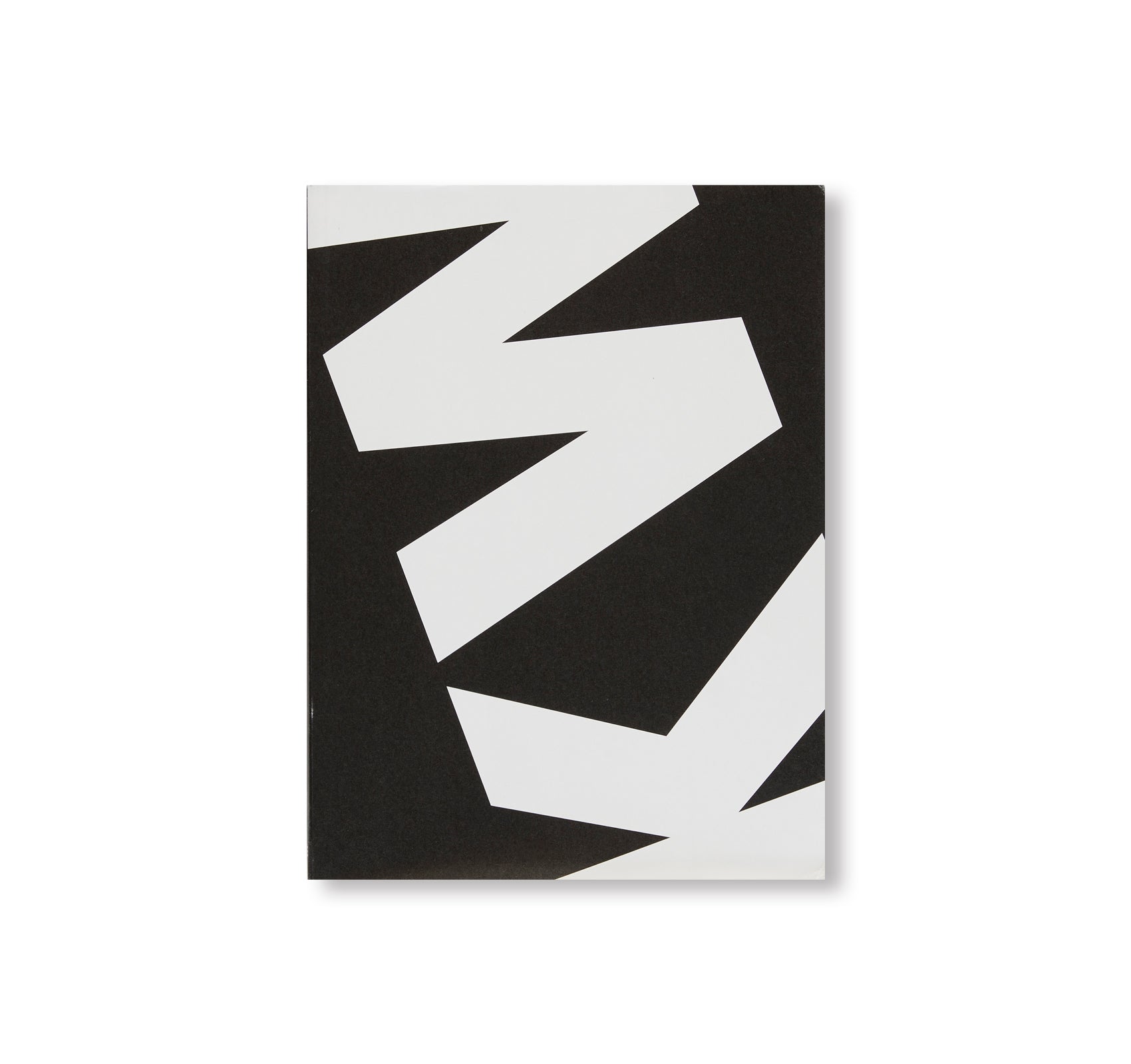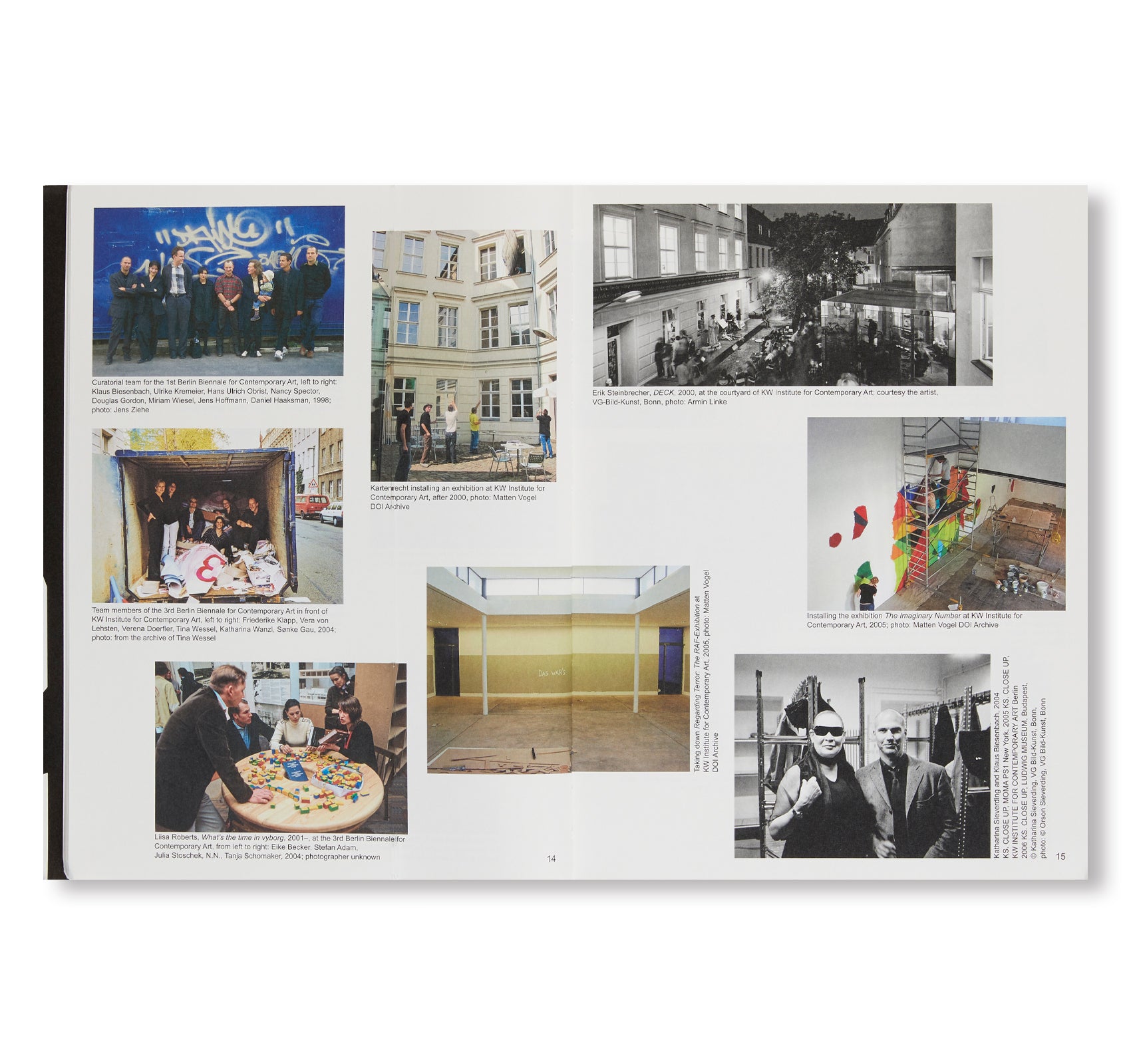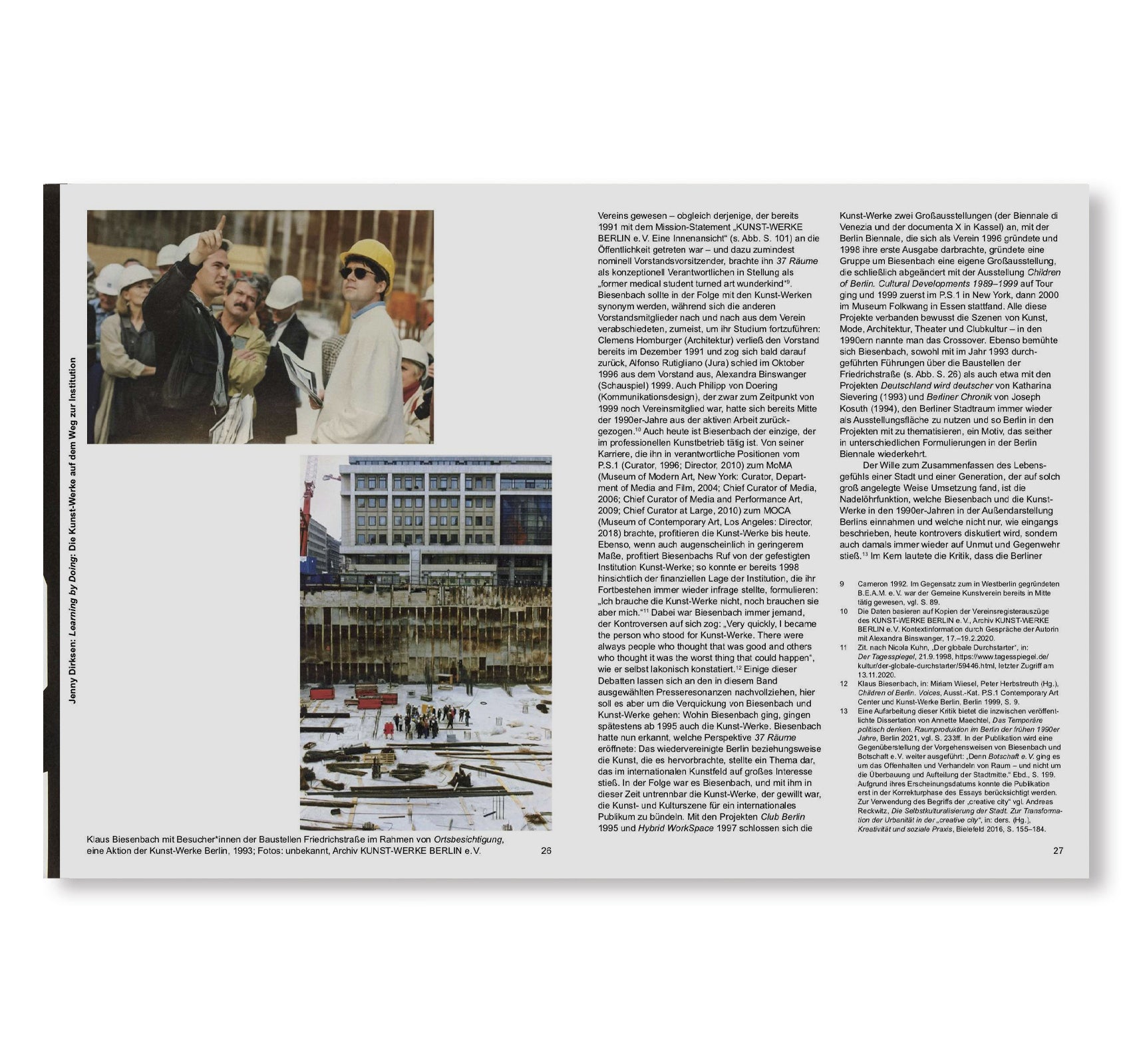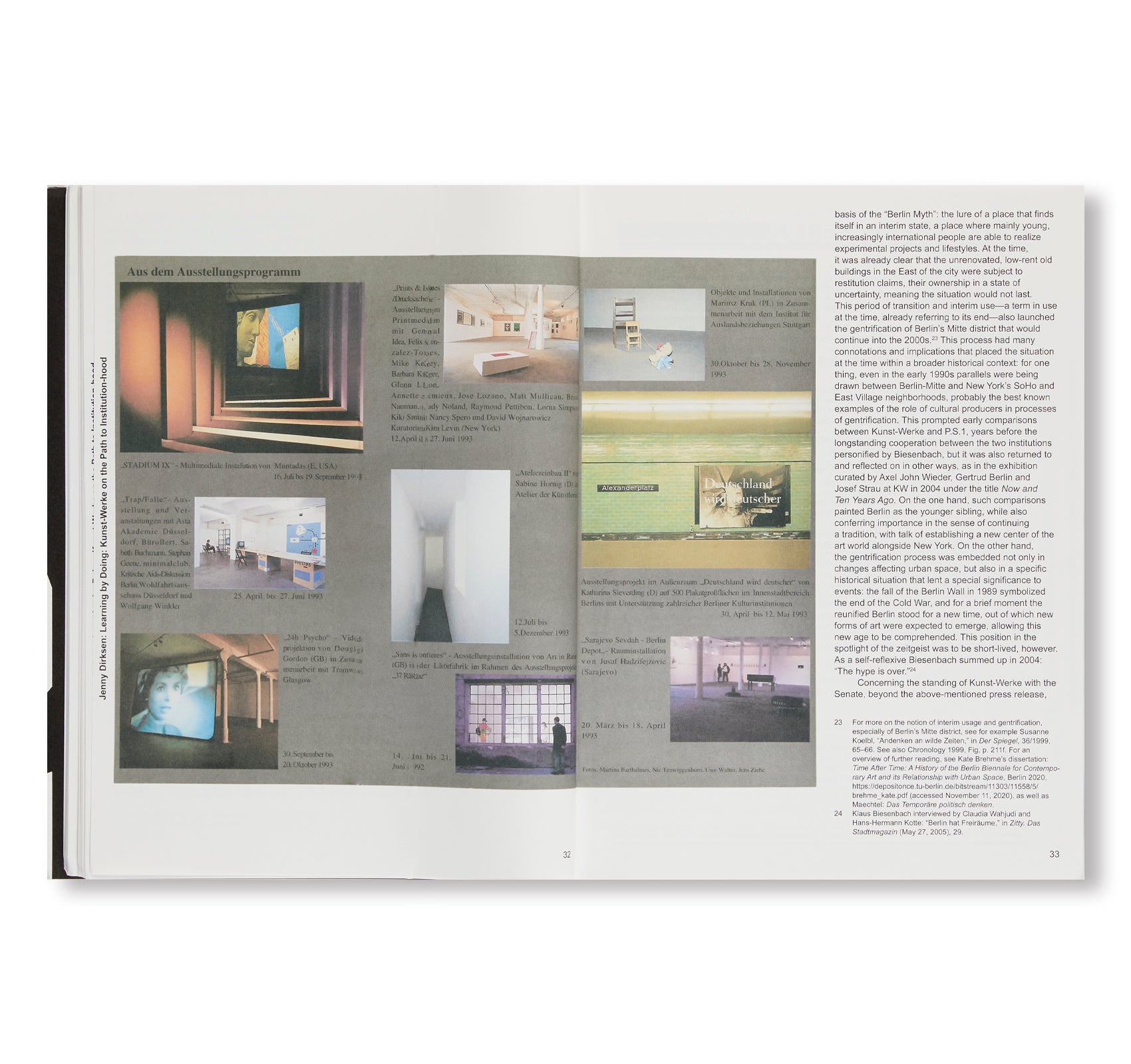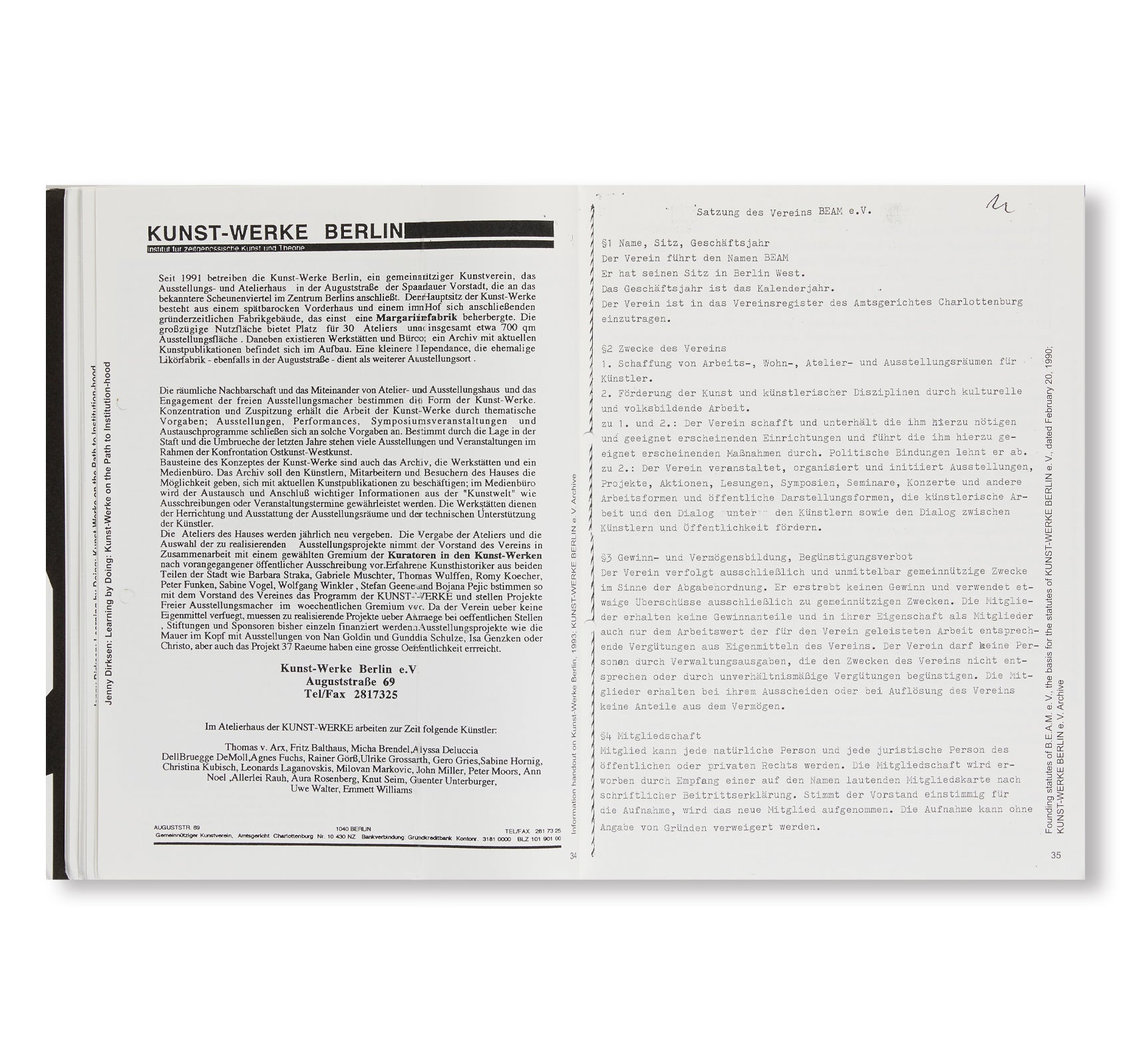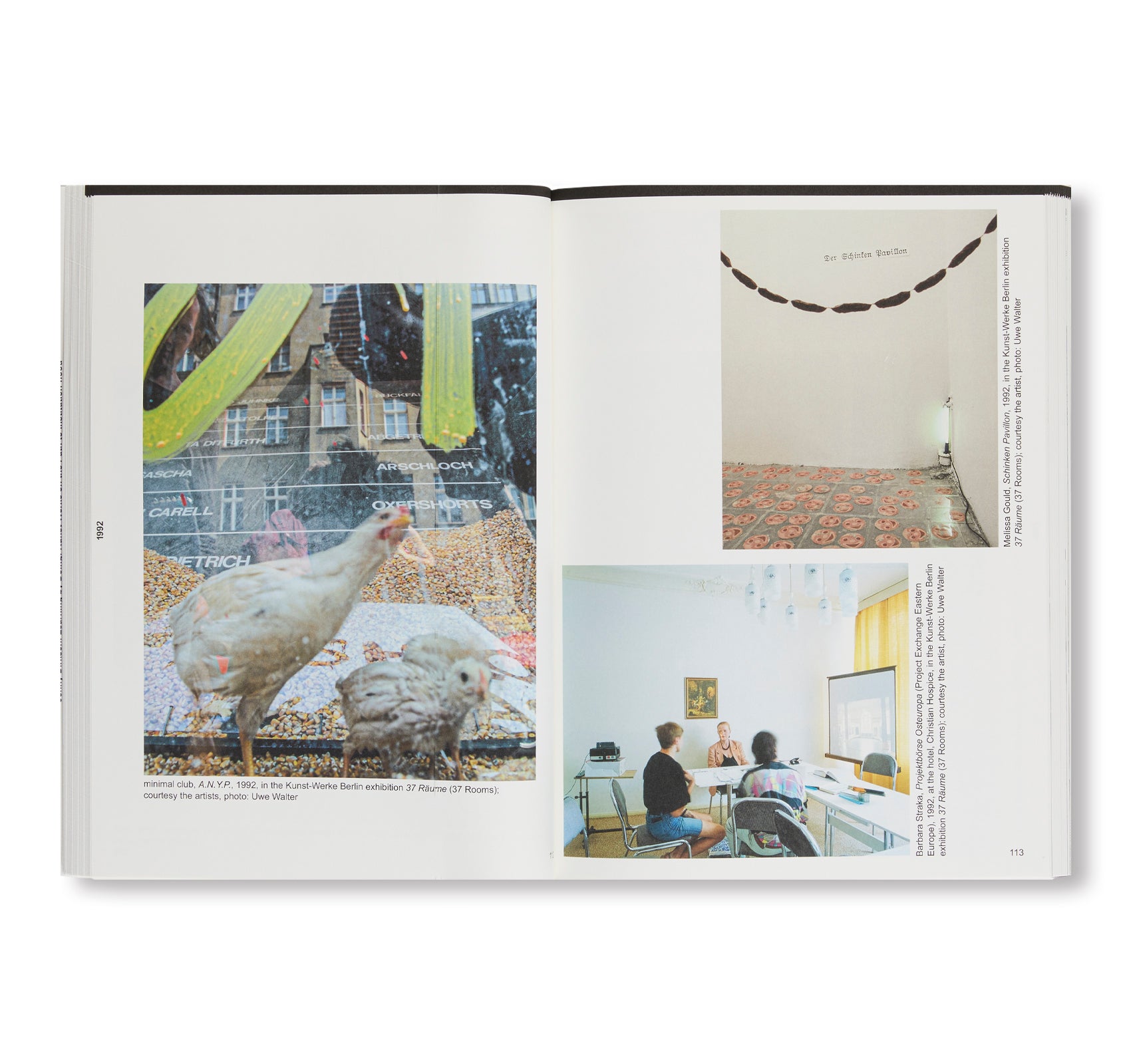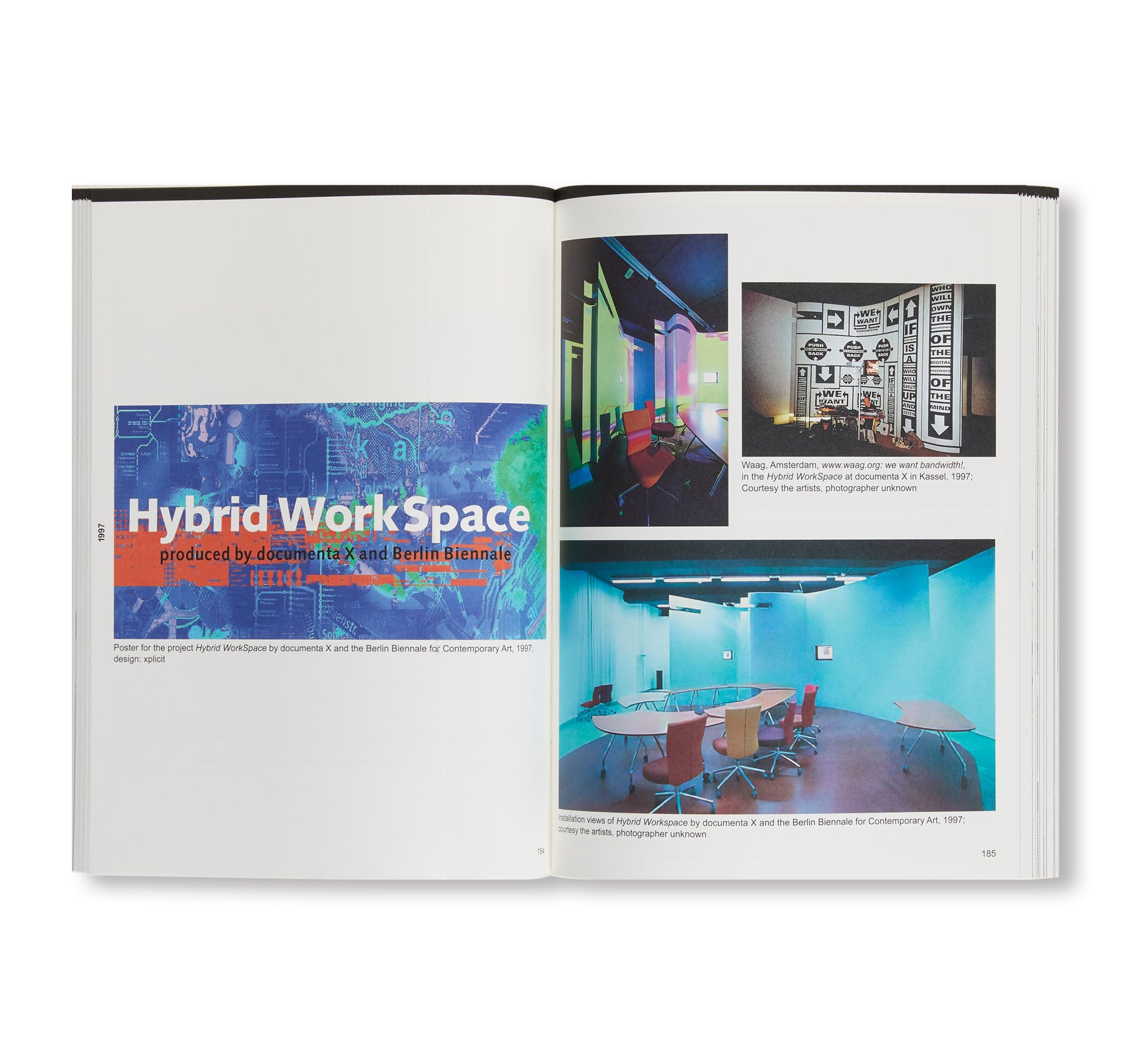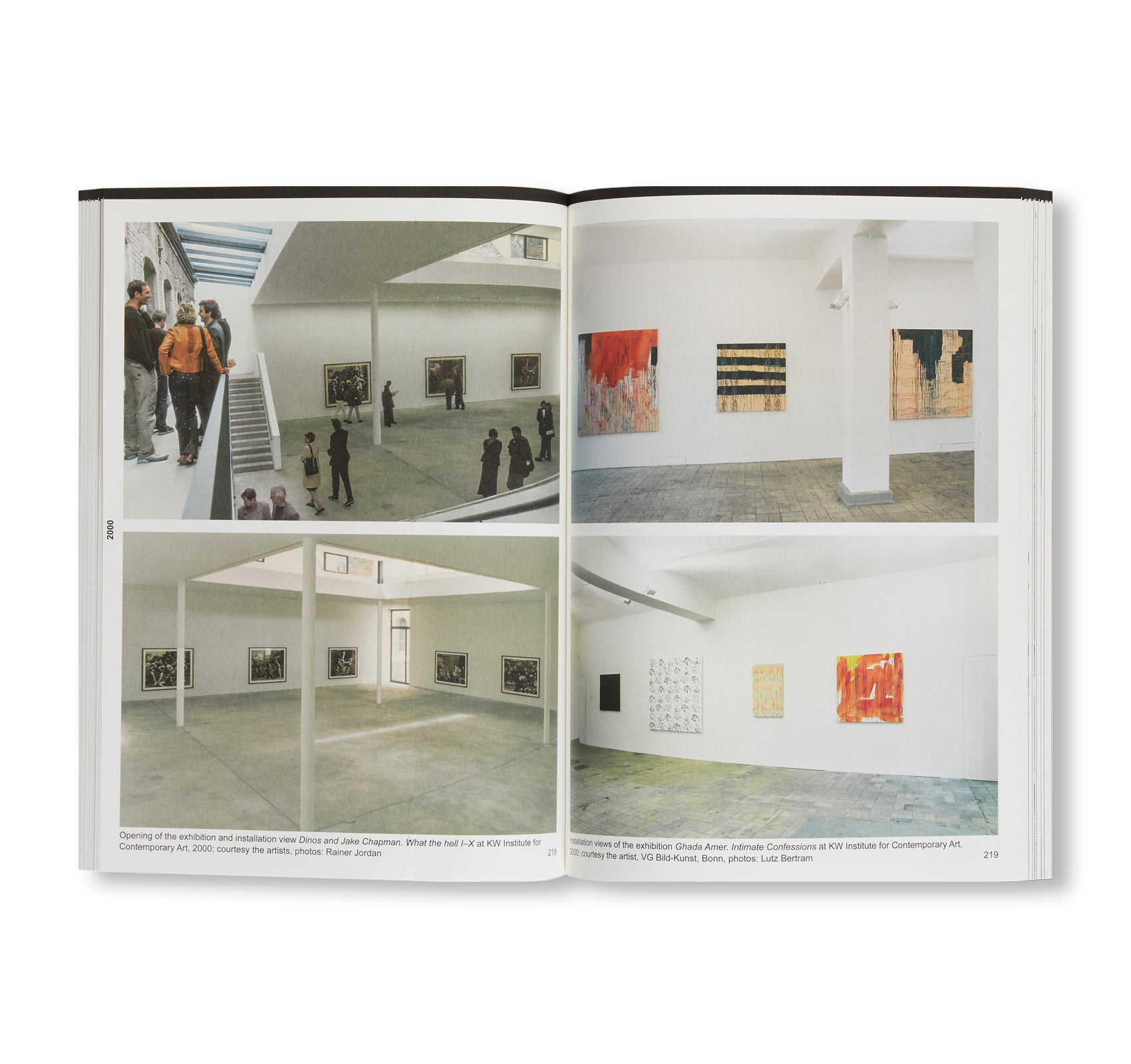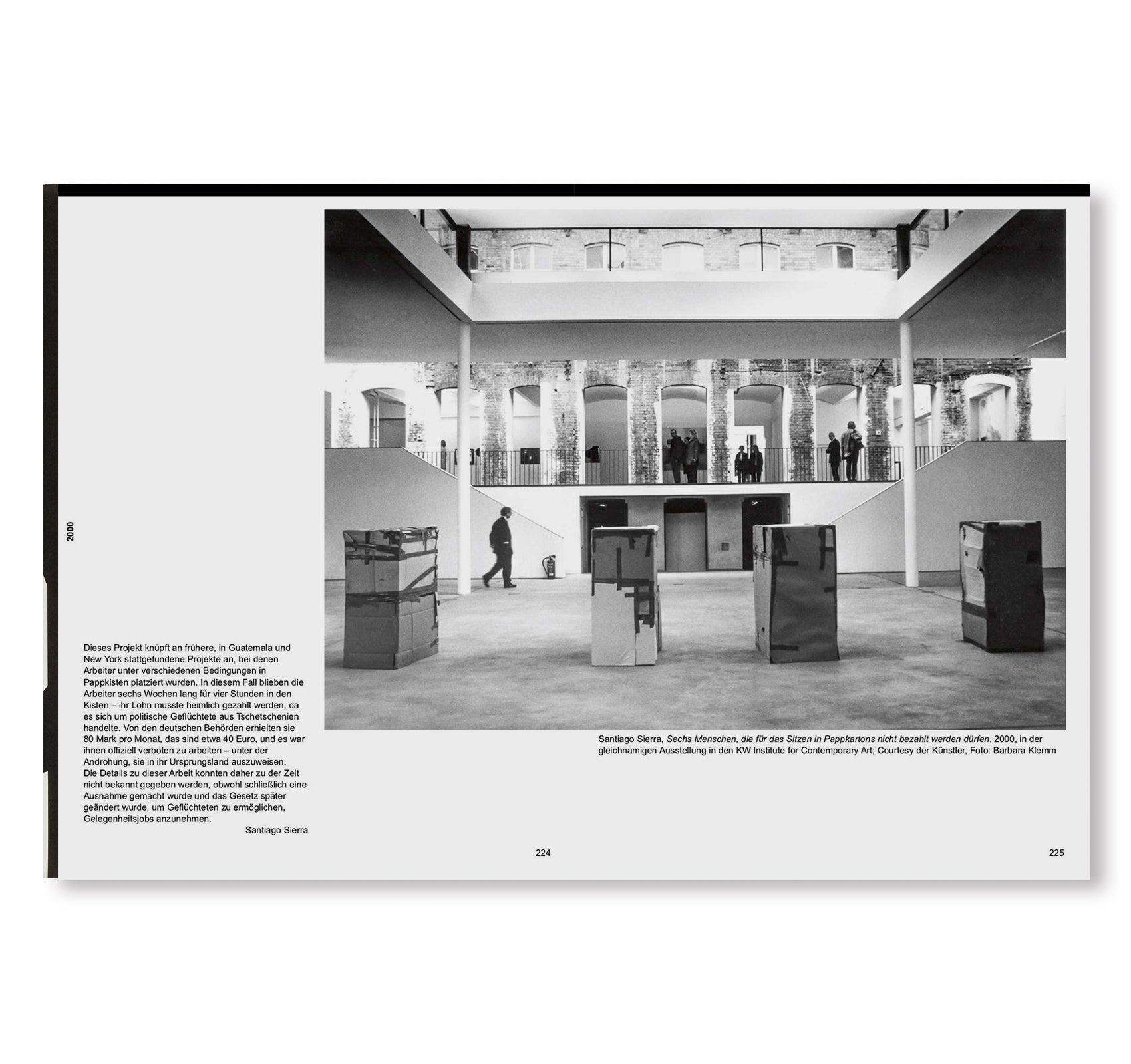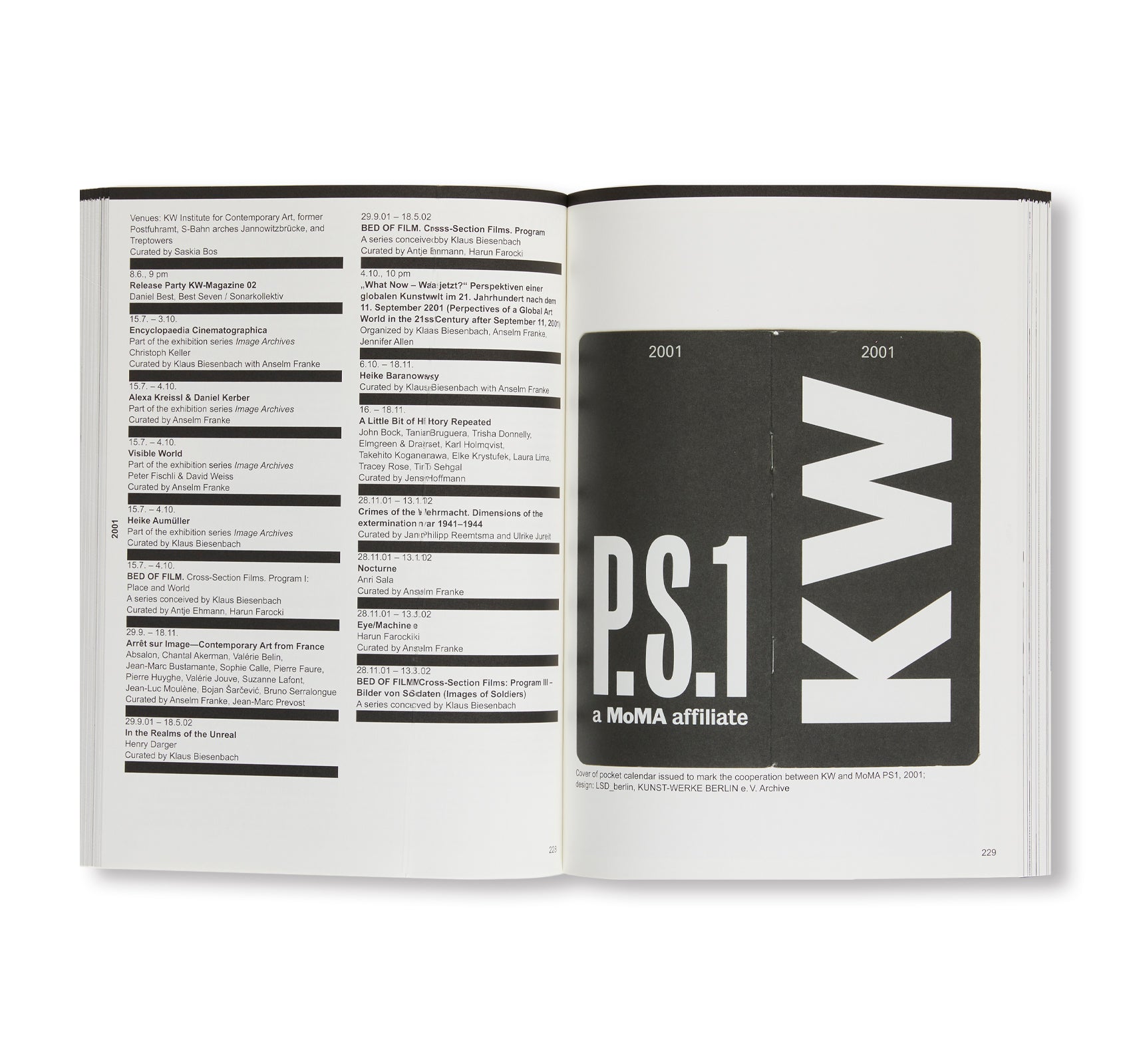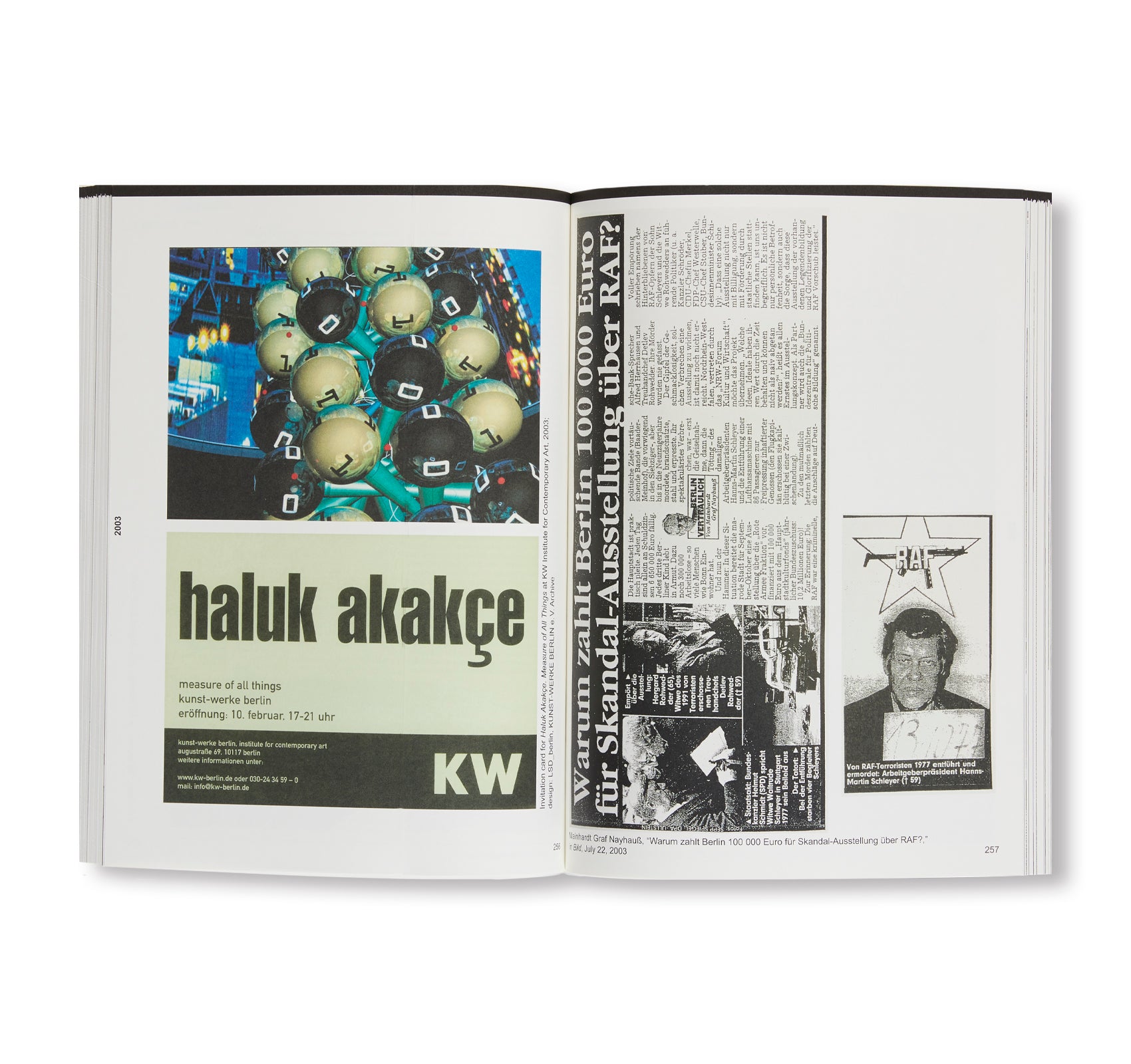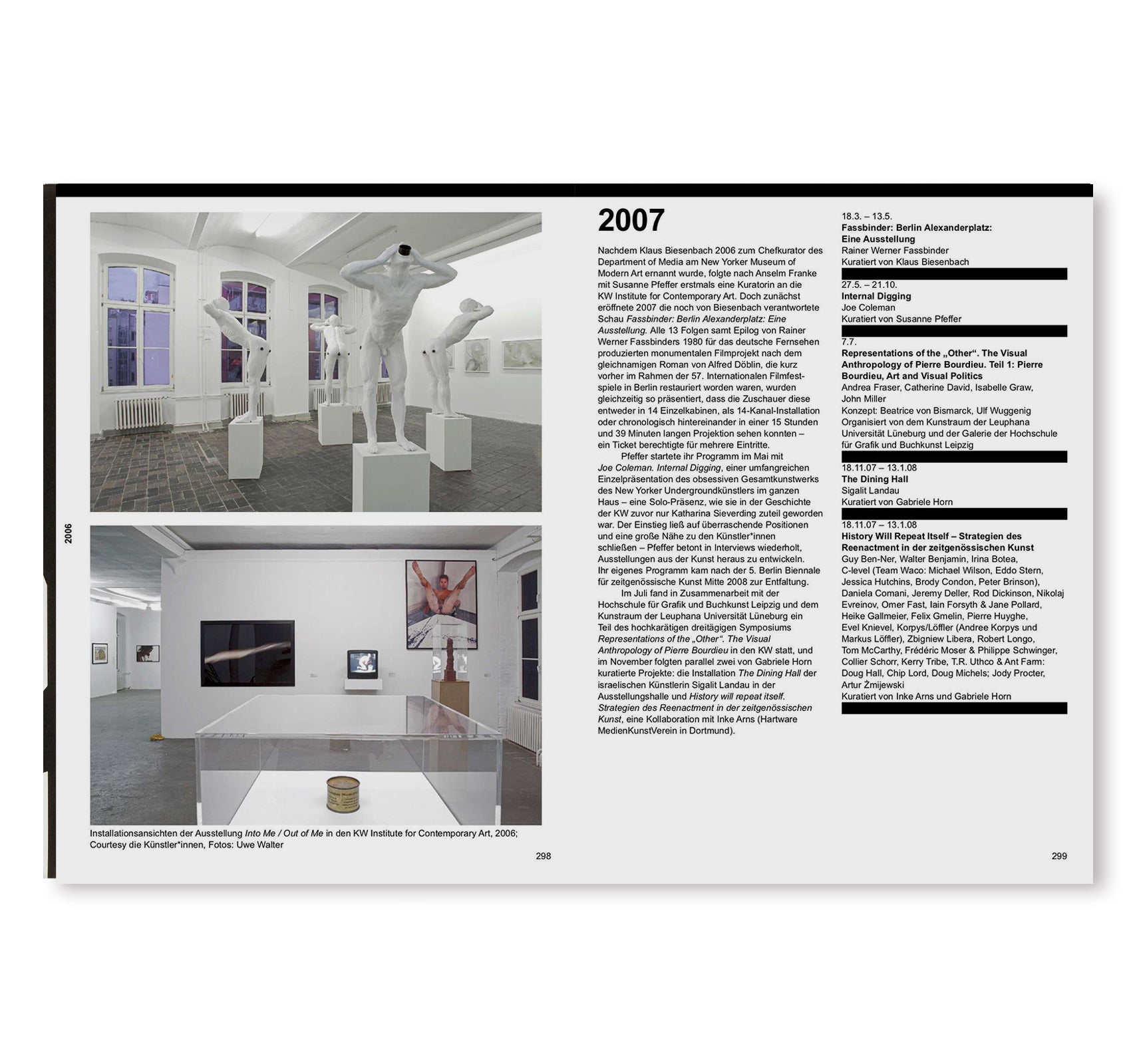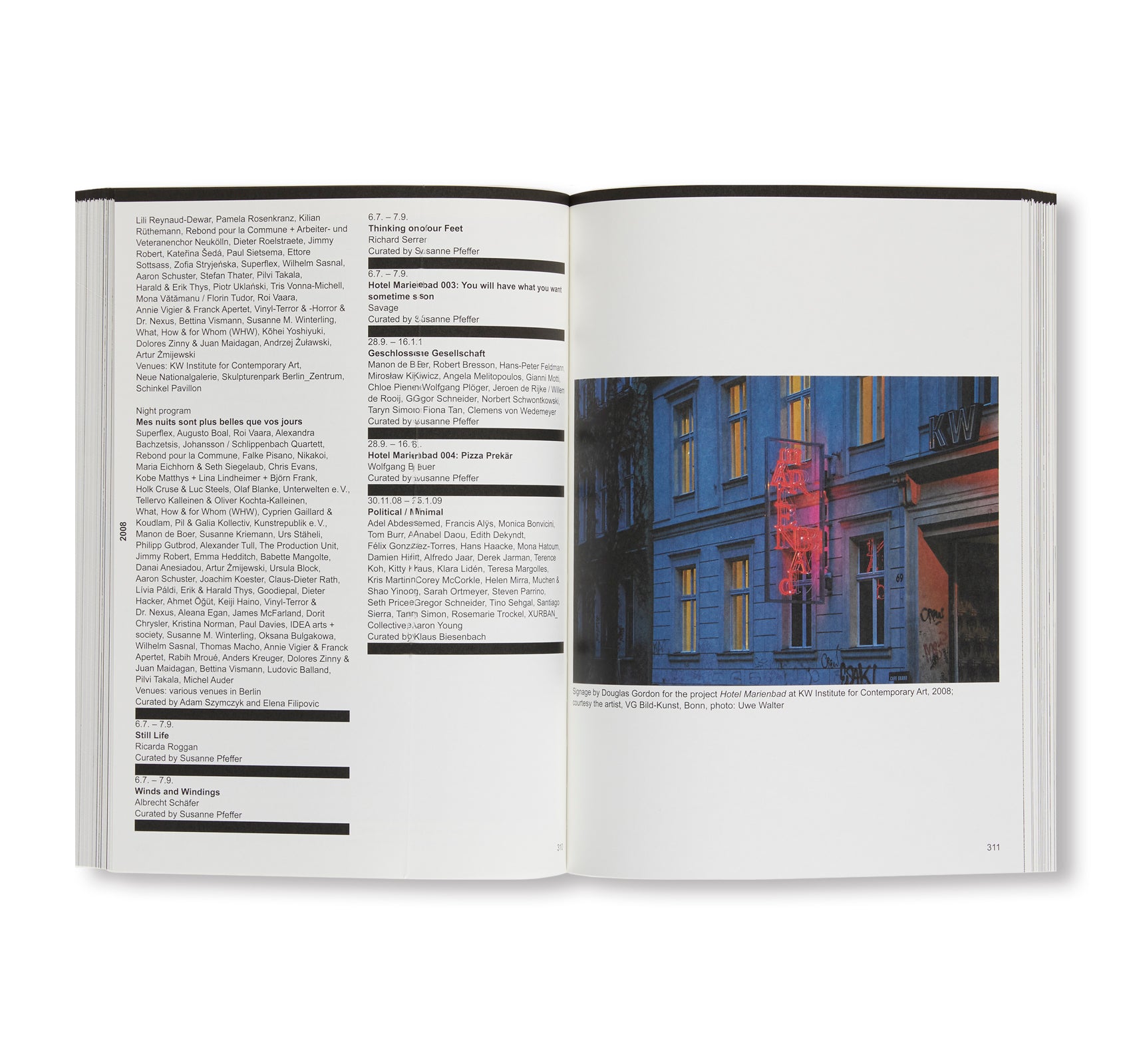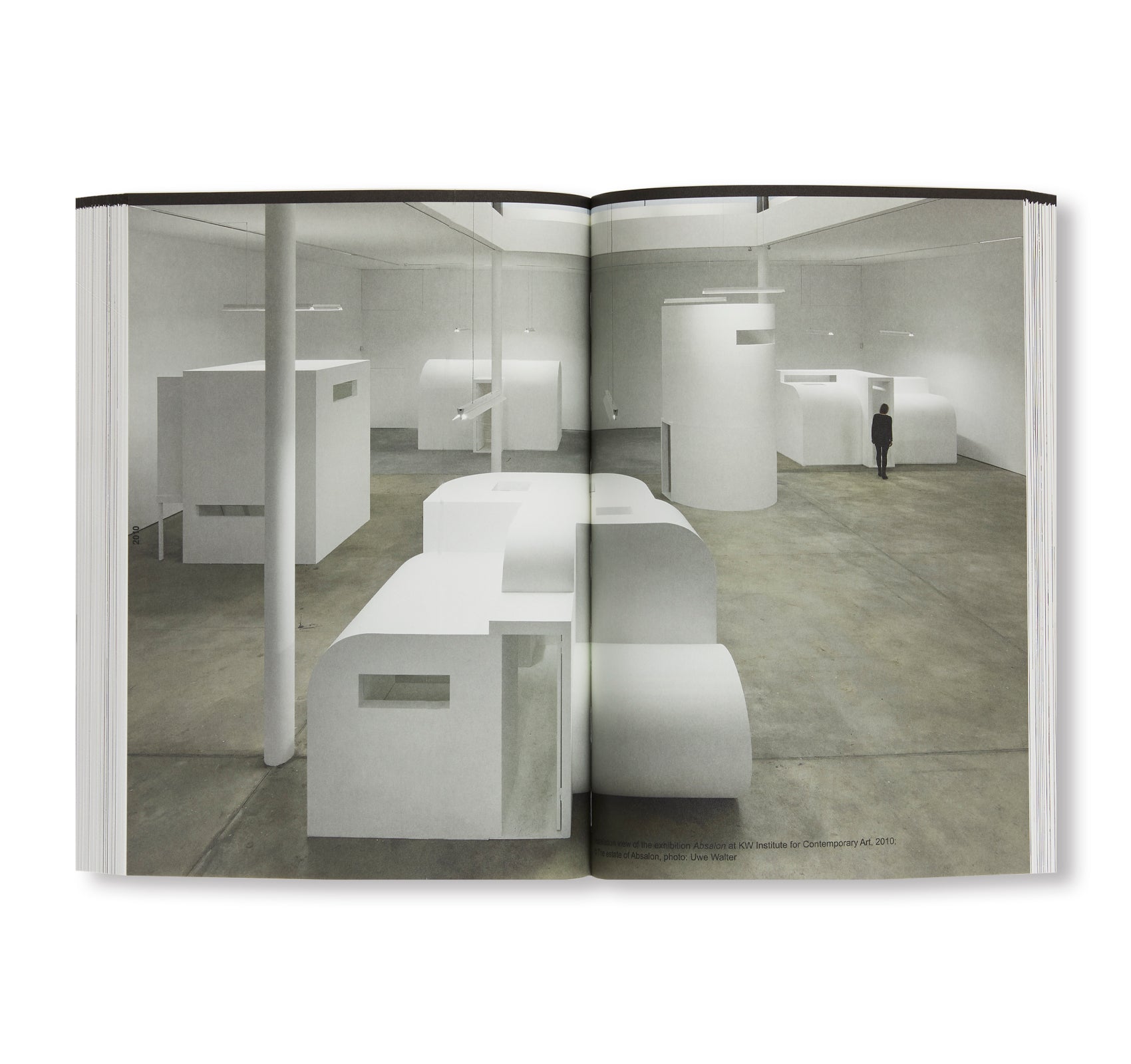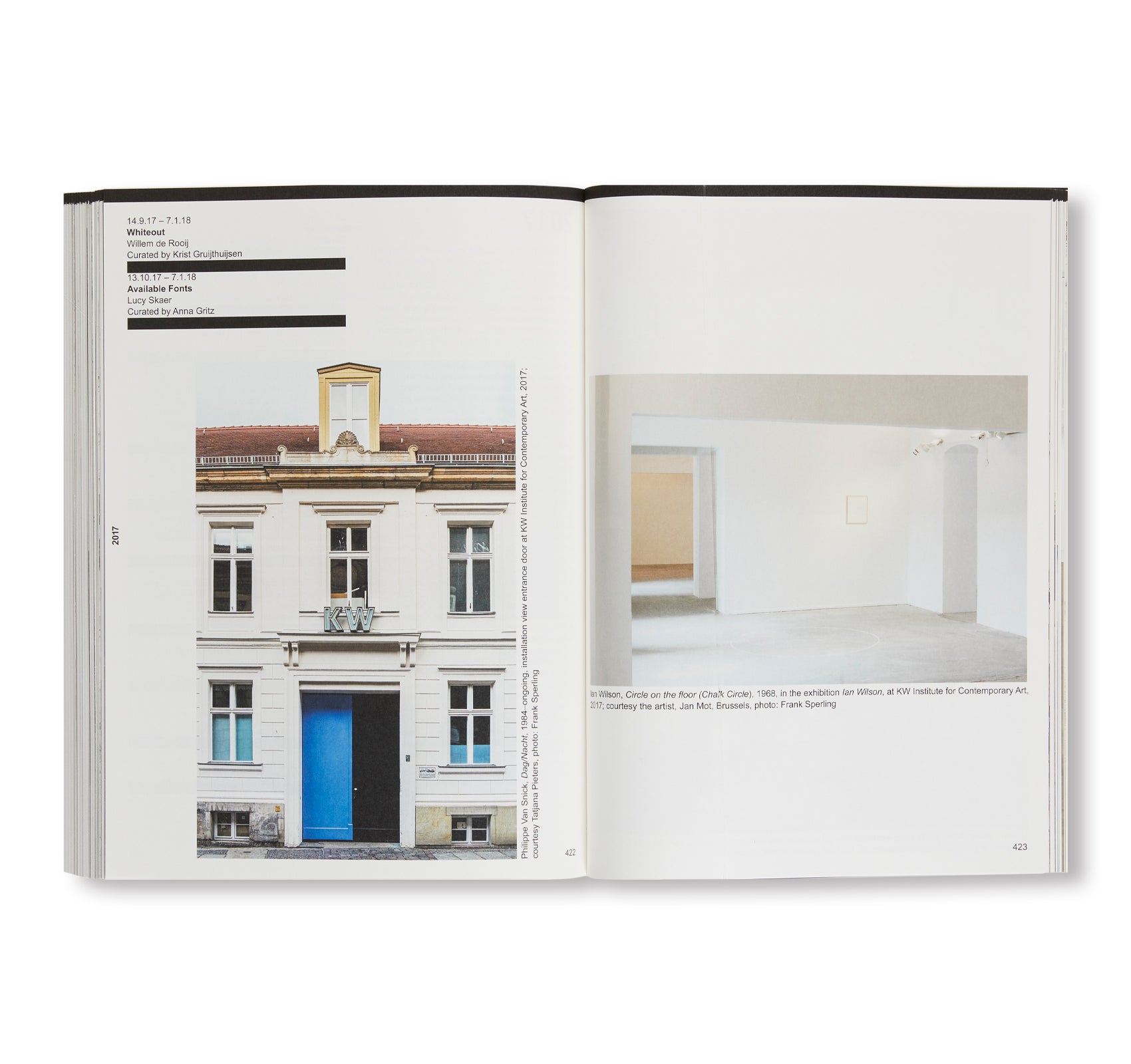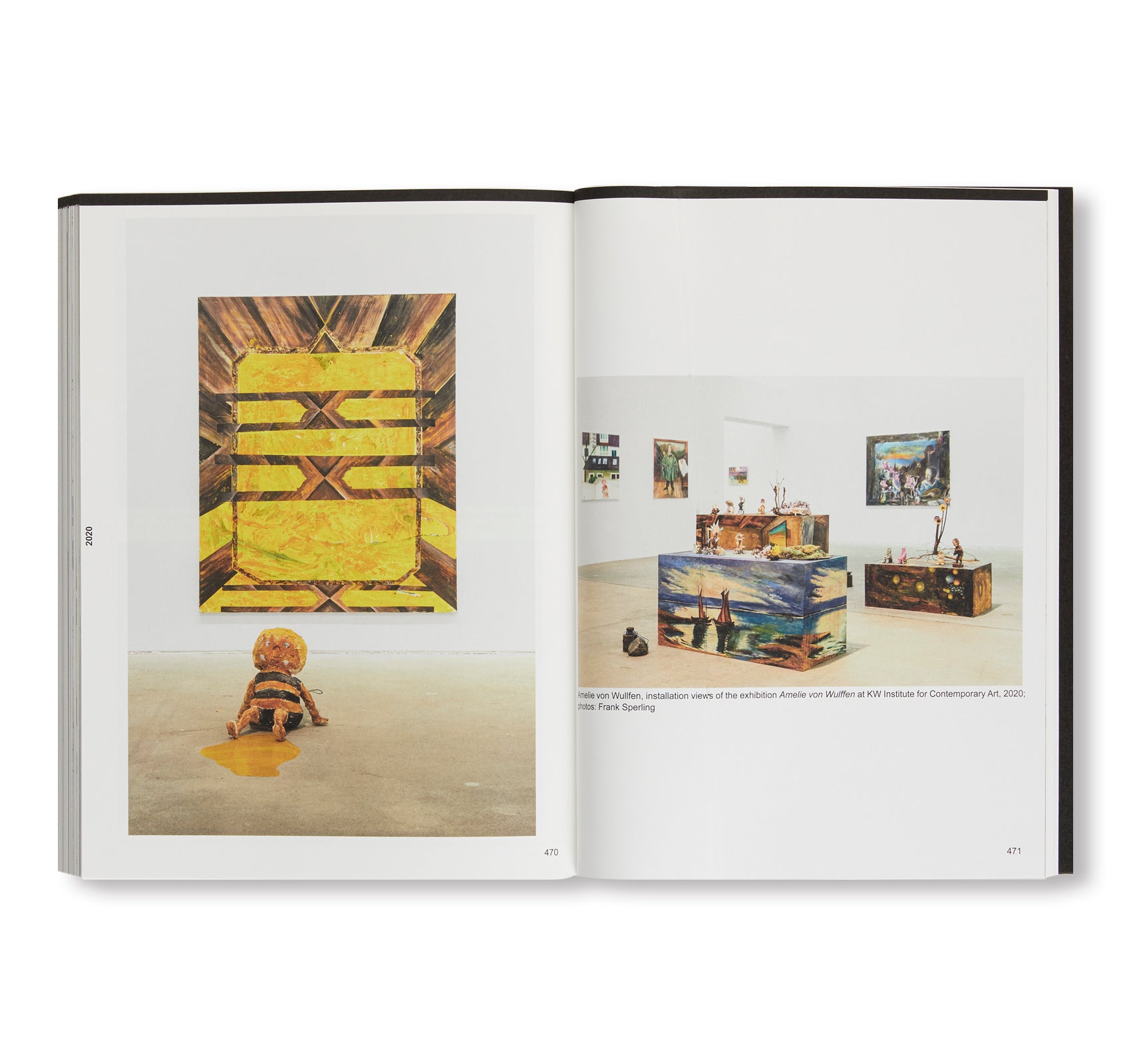KW, A HISTORY
ドイツの「クンストヴェルケ現代美術センター(KW Institute for Contemporary Art)」を運営し、ベルリン・ビエンナーレの中核を担う「KUNST-WERKE BERLIN e. V.」の作品集。現代美術の国際組織として最も高い評価を受け、2021年に設立30周年を迎えた「KUNST-WERKE BERLIN e. V.」の記念すべき年に刊行された本書は300ページを超え、年表、プロジェクトにまつわる豊富な図版、今まで「KUNST-WERKE BERLIN e. V.」を見てきた関係者によるテキストを掲載。本書は「KUNST-WERKE BERLIN e. V.」にとって初の包括的な書籍であり、膨大なアーカイブから厳選したものを紹介しながら、多層的なその歴史を展開する一冊。
KUNST-WERKE BERLIN e. V., which operates the KW Institute for Contemporary Art and mounts the Berlin Biennale for contemporary Art, is one of the most highly renowned international organizations for contemporary art and celebrates its 30th anniversary in 2021. Founded by Klaus Biesenbach, Alexandra Binswanger, Philipp von Doering, Clemens Homburger, and Alfonso Rutigliano in 1991 and led by Krist Gruijthuijsen since 2016, the KW Institute for Contemporary Art has established what was originally a dilapidated margarine factory in post-fall-of-the-Wall Berlin as a site of progressive practices in the international art field. In addition to seminal exhibition projects like when tekkno turns to sound of poetry (1995), Stand der Dinge (State of Affairs) (2000), Territories (2003), Regarding Terror: The RAF Exhibition (2005), One on One (2012/13), Fire and Forget. On Violence (2015), and The Making of Husbands: Christina Ramberg in Dialogue (2019/20), KW has showcased the art of Absalon, Kader Attia, Keren Cytter, Cyprien Gaillard, Douglas Gordon, Channa Horwitz, Carsten Höller, Renata Lucas, Hiwa K, Annette Kelm, Mika Rottenberg, Anri Sala, Christoph Schlingensief, Hassan Sharif, and many others. First held in 1998 and directed by Gabriele Horn since 2002, the Berlin Biennale for Contemporary Art brings artists, theorists, and other prominent figures from all over the world to the city every two years and has made vital contributions to emerging discourses in contemporary art.
Released on occasion of the anniversary, this first comprehensive publication on KUNST-WERKE BERLIN e. V. is the fruit of Jenny Dirksen’s extensive research into the organization’s history. It presents selections from the sizable archive and unfurls a polyphonic institutional history, with a timeline running to over 300 pages, photographs, writings by Klaus Biesenbach, Jenny Dirksen, Susanne von Falkenhausen, Eva Scharrer, and Jan Verwoert, and recollections of contemporary observers and friends and associates of the KUNST-WERKE BERLIN from three decades.
